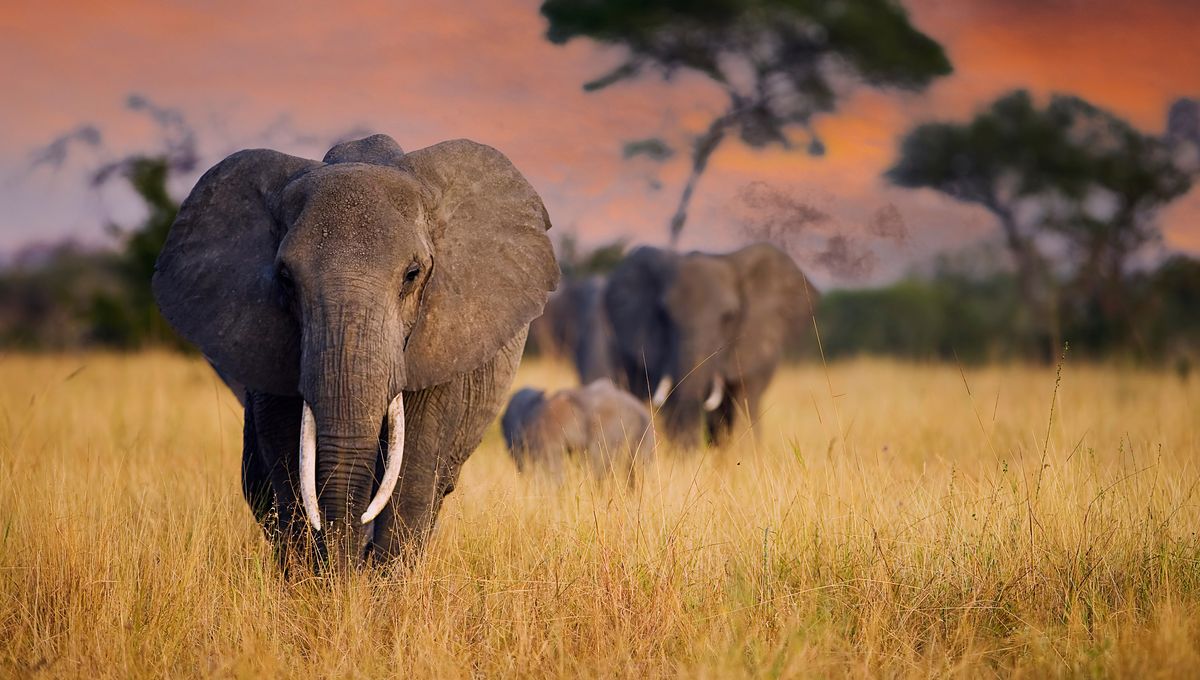
Names are universal throughout human cultures and across different languages. They form a huge part of our identity and help us communicate with each other, but personal names are considered a uniquely human thing. Now, new research has suggested that wild African elephants could address each other with individual specific calls – the equivalent of a name – with fascinating implications for the evolution of language.
The new research, which has been posted as a preprint and has not yet been certified by peer review, analyzed calls from wild elephants in two areas of Kenya: the greater Samburu ecosystem to the north, and the Amboseli National Park to the south.
The final dataset contained 625 separate calls, 597 of which occurred between members of the same family group. There were 114 unique callers and 119 unique receivers. The researchers only included calls directed at a single individual elephant, and for which the receiver could be identified.
The team measured the acoustic features of the elephant sounds and ran a series of statistical tests on the data, to see if it was possible to predict the identity of the receiver from the call. And indeed, this was found to be the case, as the team writes: “[R]eceivers of calls could be correctly identified from call structure statistically significantly better than chance.”
One aspect the team were particularly interested in was whether the calls mimicked the receiver’s own vocalizations. This has been observed in other species, such as dolphins, which can learn each other’s individual vocal labels and respond to their own label when they hear it.
What was fascinating about the elephant data, though, was that the authors found limited evidence that the callers were imitating each receiver’s own call. “To our knowledge, this study presents the first evidence for vocal addressing of conspecifics without imitation of the receiver’s calls in nonhuman animals,” they write.
The authors also took 17 of the elephants and played them recordings of calls that were originally addressed to them to see how they responded. “Further supporting the existence of vocal labels,” the authors write, “subjects approached the speaker more quickly […] and vocalized more quickly […] in response to test playbacks than control playbacks.”
Overall, the authors concluded that this could well be the first evidence of a non-human species using a human-like naming system to refer to other individuals. As to why this might arise in elephants specifically, there are some clues we can glean from their social structures.
“Due to their fission-fusion social dynamics, elephants are often out of sight of their closely bonded social partners and produce contact rumbles to communicate over long distances,” the authors explain, referring to elephants’ tendency to split themselves up into smaller parties that can then aggregate together to form large groups, sometimes hundreds-strong.
“Vocal labels could enhance coordinating ability while out of sight of one another,” the authors continue, also noting that the labels only cropped up in a minority of vocalizations, likely because in many contexts there is no need to use them.
There’s also a cuddlier aspect to all this: calling each other by their names could be a way of enhancing social bonding, the authors posit, as is the case with humans.
As a preprint study, it’s important to remember that this research is yet to be subjected to peer review. However, the authors do note that the “findings raise intriguing questions about the complexity of elephant social cognition,” and thus open up a fascinating new avenue for researchers to explore.
The preprint has been posted to bioRxiv.
Source Link: African Elephants May Use Names For Each Other, A First Outside Of Humans